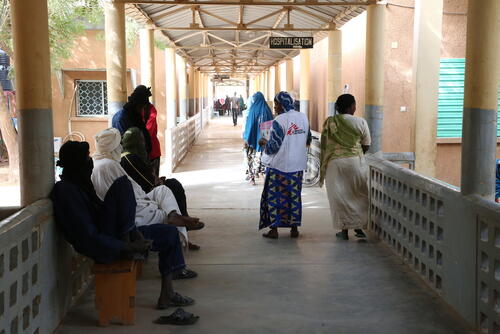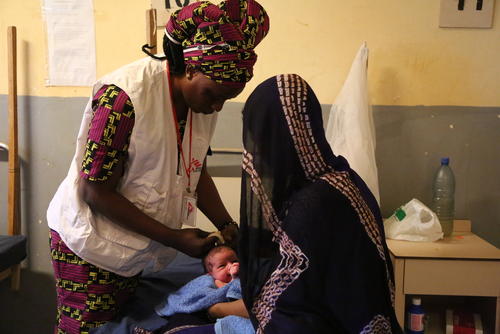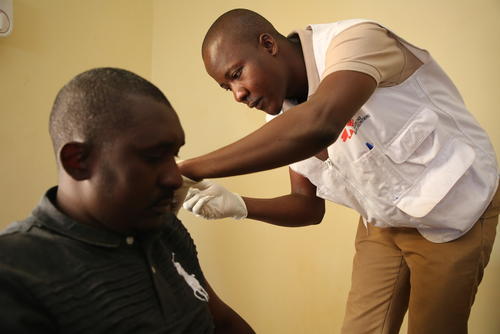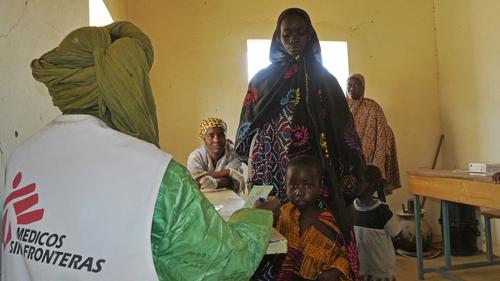Jamal Mrrouch has just returned from Mali, where he spent more than one year coordinating MSF’s work in the northern regions of Gao and Kidal, and in the central region of Mopti. With the first round of the presidential elections scheduled for 29 July, Jamal reflects on the humanitarian situation in the country.
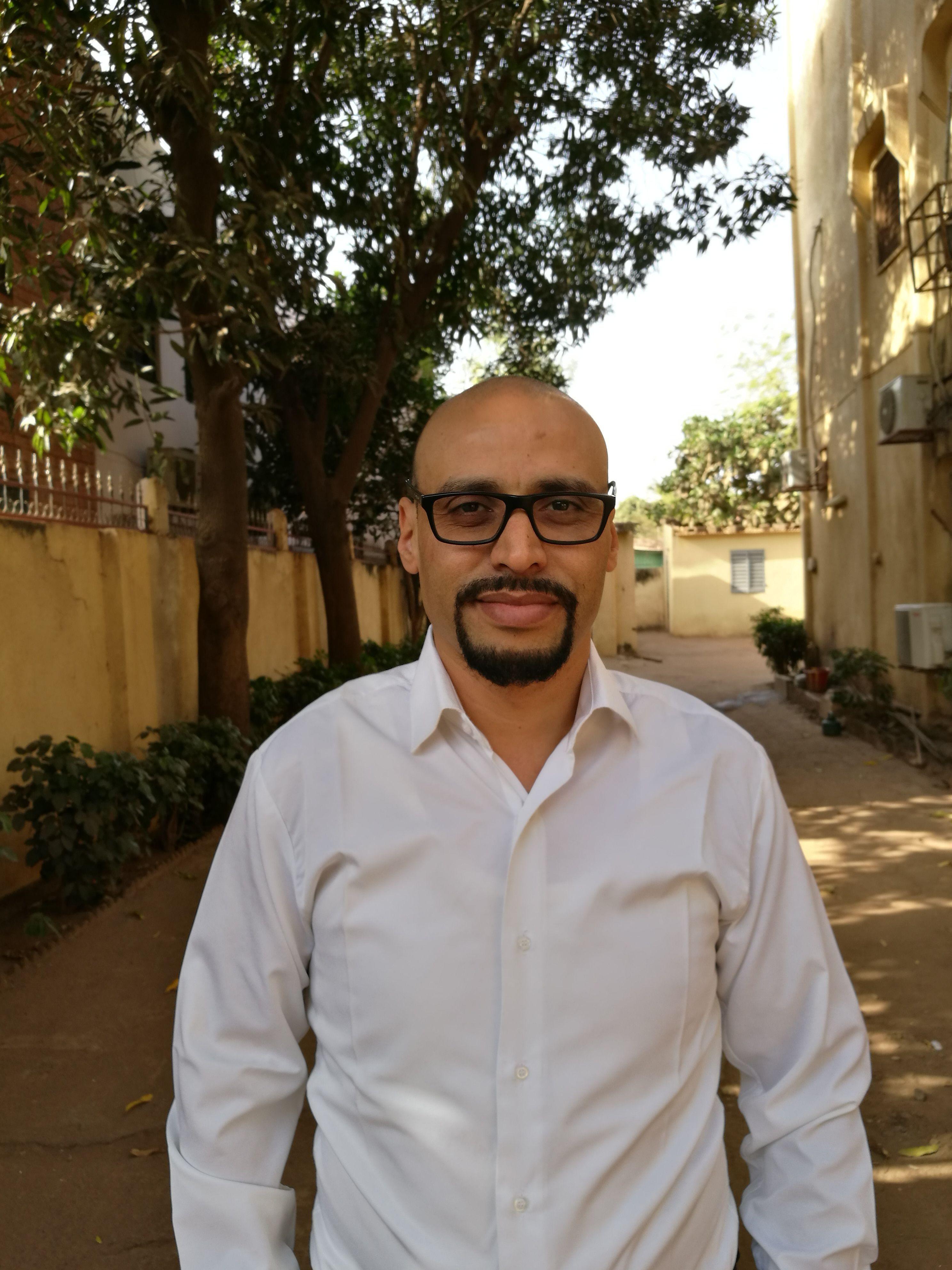
What are the primary needs in the north and centre of Mali?
Insecurity has pushed people to their limits. Over five years have passed since the conflict broke out in 2012, and three years since the Algiers peace agreement was signed by several armed opposition groups and the government of Mali. Despite this, there has not been any progress and the ongoing conflict is becoming a chronic crisis.
People’s basic needs, such as health, protection and nutrition, are not being completely met. Inter-community conflicts are fuelling tensions and causing internal displacement. But while the political solution is stagnant, the international community is giving priority to military operations in northern and central Mali.
Has the situation improved at all in this last year?
The humanitarian situation has continued to deteriorate in recent years due to several factors. There has been no rain lately, which affects the harvest and access to food for the population.
In most of the towns in the north and central regions of the country, and especially in rural areas, insecurity is disrupting basic services. The ban on using motorcycles and vans in the centre of the country hinders access to healthcare, as these are the only means of transport to reach medical facilities. Since the ban has been in force, we have recorded a 40 per cent decrease in admissions to a hospital we support in Douentza, in the Mopti region of central Mali.
In addition, insecurity in the Sahel is causing many people to become displaced, which makes it difficult to meet even the most basic humanitarian needs. According to the UN refugee agency, UNHCR, more than 130,000 Malian refugees have sought refuge in neighbouring countries such as Burkina Faso, Mauritania and Niger. And given the situation in the northern and central regions, they are unable to return home any time soon.
MSF started working in the Mopti region a year ago. Why?
Since 2013, several armed groups have gradually occupied the centre of the country and today it is one of the most tense areas in Mali. It is a very densely populated region and different groups compete for the exploitation of the land.
The clashes between the Fulani and Dogon communities, traditionally farmers and pastoralists, have become even more complicated with the ongoing crisis. One or other community is accused of collaborating with armed opposition groups in the area, which in turn stigmatises different members of that community. This results in violent confrontations, with civilians injured or killed.
In this tense climate, state services and aid organisations have left the area. Many organisations cannot guarantee the protection of their staff and their operations against crime and violence, which has increased a lot in the area over the past year.
What are the main challenges for humanitarian organisations in the country?
First, the magnitude of people’s needs is incredibly challenging. The most basic needs are not being met in many areas, despite the efforts of the humanitarian community. In addition, funding for humanitarian aid is becoming increasingly scarce and there is very little presence of non-government organisations (NGOs) in the north and centre of the country, mainly due to the insecurity.
Criminality against civilians and humanitarian organisations is increasing and this violence causes many people, including medics and other public service workers, to flee and take refuge with their families. Unfortunately, civilians are the targets of daily attacks for reasons of ethnic affiliation or suspected links with armed groups. All this is made worse by a climate of impunity.
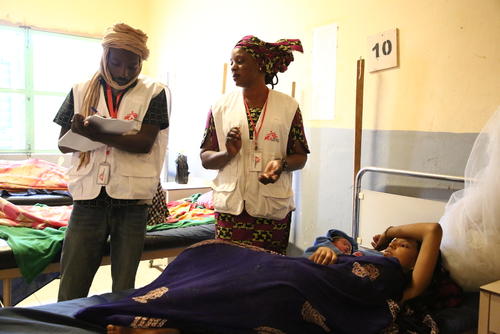
In 2017, MSF published a report on the instrumentalisation of humanitarian aid by armed groups. What is the situation like right now?
The confusion between military and humanitarian groups continues. Through so-called quick impact programmes and similar activities aimed at winning over the population, military groups organise pseudo-humanitarian services. Their vehicles are white, the same colour as the NGOs. This leads to dangerous confusion, damaging the image of humanitarian action! There is an increased risk of humanitarian staff being targeted, as it is more difficult to convince people of their impartiality. Because of this, it has become extremely difficult to reach those who are most vulnerable.
MSF has just completed a multi-antigen vaccination campaign in Kidal. What were the challenges of this intervention?
The campaign was unique: it allowed us to vaccinate more than 10,000 children under five against diphtheria, measles, whooping cough, meningitis, pneumonia, yellow fever and other life-threatening diseases. Some of these children live in the northern desert areas of Mali and had never been vaccinated before.
Despite logistical, security and climate challenges – with temperatures approaching 50 degrees Celsius – MSF teams built trust with local people and community leaders. The campaign was carried out in collaboration with local authorities and the Ministry of Health and Public Hygiene.
MSF teams are working in Mali in the Kidal region and in the districts of Ansongo (Gao region), Koutiala (Sikasso region), and Ténenkou and Douentza (Mopti region), notably strengthening the provision of maternal and paediatric care.



